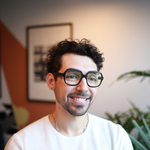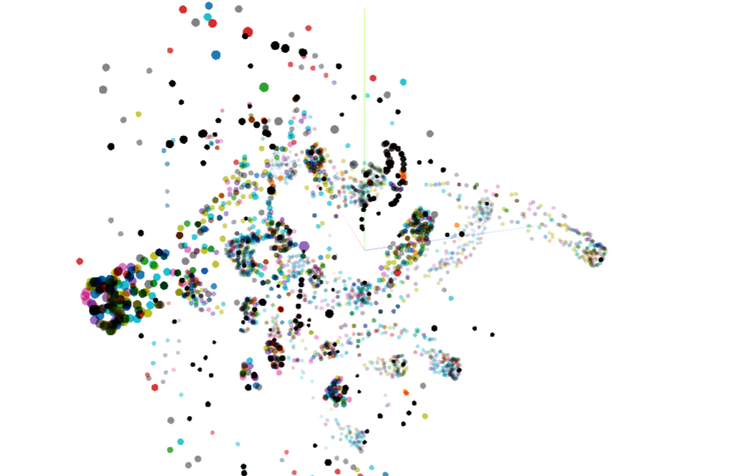You're Trapped in a Filter Bubble. Here's How to Escape (And Why You Must).

I remember a few years back, scrolling through my news feed on Google. Everything I saw seemed to perfectly align with my own perspective – articles reinforcing my beliefs, opinion pieces echoing my sentiments, even the ads seemed tailor-made for someone exactly like me. It felt validating, comfortable even. But then, a conversation with a friend who held starkly different views revealed a jarring truth: their news feed looked entirely different, filled with articles and opinions that painted a completely opposite picture of the same events. It was a stark reminder that the digital window through which I viewed the world wasn't just showing me the news, it was showing me my news.
This experience isn't unique. It’s a direct consequence of what we call the "echo chamber effect," a phenomenon amplified by the very technologies designed to make our online lives easier and more engaging. Understanding this effect, and learning how to navigate it, is crucial for anyone seeking a well-rounded understanding of the world.
What is the Echo Chamber? Understanding the Walls
At its core, an echo chamber is an environment, often online, where a person encounters only beliefs or opinions that coincide with their own. Existing views are reinforced, and alternative ideas are rarely, if ever, presented. This isn't a malicious conspiracy; it's often just the byproduct of algorithms designed for personalization.
Think about news aggregators, social media platforms, and even online shopping sites. Their goal is often to maximize engagement – clicks, likes, shares, time spent on the site. To achieve this, sophisticated algorithms learn your preferences based on your past behavior. They notice which articles you read, which videos you watch, which posts you interact with. Consequently, they serve you more of the same, assuming (often correctly) that you'll engage more with content that aligns with your existing interests and beliefs.
Personalized results can be helpful in some contexts but problematic in others. For example, if you frequently watch cooking videos on YouTube, it's likely that you appreciate more recommendations for similar content. Similarly, if you often purchase mystery novels on Amazon, you probably won't mind receiving more recommendations for books within that genre.
However, issues can arise when people use search engines like Google to actively seek information. If someone consistently searches for conspiracy theories and content that supports their beliefs, and then searches for something like "is the earth flat," personalized results could lead to them only seeing websites that confirm their misconception.
This leads directly to the concept of the "filter bubble," a term coined by internet activist Eli Pariser. It describes the state of intellectual isolation that can result from personalized searches and feeds. The algorithms effectively create a unique information universe for each individual, filtering out content that might challenge their assumptions or introduce differing viewpoints. We end up in a comfortable bubble where our own views are constantly echoed back to us, potentially distorting our perception of reality and the prevalence of opposing perspectives.
Photo by Martin Sanchez on Unsplash
The Danger: Why Filter Bubbles Matter
Why should we care if our news feeds are comfortable and affirming? The danger lies in the consequences for both individuals and society:
- Increased Polarization: When we only hear voices that agree with us, it becomes easier to demonize or misunderstand those who hold different views. Nuance disappears, and complex issues are reduced to simplistic "us vs. them" narratives.
- Hindered Critical Thinking: Exposure to diverse viewpoints is essential for developing critical thinking skills. If we're never challenged, we don't learn to evaluate different arguments, identify biases (including our own), or synthesize information from multiple sources.
- Spread of Misinformation: Echo chambers can become breeding grounds for misinformation and disinformation. False or misleading narratives can spread rapidly within a closed group, unchallenged by external facts or alternative perspectives.
- An Ill-Informed Citizenry: For a healthy democracy to function, citizens need access to reliable and diverse information to make informed decisions. Filter bubbles prevent this, creating pockets of the population who may be operating with incomplete or skewed understandings of critical issues.
Breaking Free
Addressing the echo chamber effect requires action on multiple levels – from the platforms shaping our information environment to the choices we make as individuals.
Systemic Changes Needed:
- Algorithmic Transparency and Control: Platforms could offer users more transparency about how their feeds are being curated and provide meaningful controls to adjust personalization levels or intentionally introduce diverse perspectives. Perhaps algorithms could be tweaked to prioritize viewpoint diversity alongside engagement, though this presents significant technical and business challenges.
- Investing in Media Literacy: Education systems play a vital role. Teaching media literacy skills from an early age – how to identify bias, evaluate sources, understand algorithmic influence, and recognize manipulative content – is crucial for navigating the modern information landscape.
- Supporting Diverse Journalism: A robust, independent, and diverse press is fundamental. Supporting journalistic outlets committed to in-depth reporting, multiple perspectives, and fact-checking helps ensure higher-quality information is available in the first place.
What Can We Do as Individuals?
While systemic changes are necessary, we are not powerless. We can actively work to pierce our own filter bubbles:
- Diversify Your Information Diet: Make a conscious effort to seek out news and opinions from a variety of sources, including those you might initially disagree with. Follow publications and writers across the political spectrum. Look for international news sources to get perspectives from outside your national bubble.
- Be Mindful of Personalization: Recognize that what you see online is often tailored to you. Use tools like private Browse/incognito modes occasionally to see less personalized search results. Consider using RSS readers, where you curate the sources, not an algorithm.
- Question and Verify: Don't take information at face value, especially if it triggers a strong emotional reaction. Practice basic fact-checking before sharing. Look for corroborating evidence from multiple reliable sources.
- Engage Respectfully (and Offline): When you encounter different viewpoints, try to understand the reasoning behind them rather than immediately dismissing them. Engage in respectful conversation, seeking to learn rather than just "win." Remember that face-to-face conversations often allow for more nuance than online debates.
- Utilize Tools (Cautiously): Some tools and browser extensions aim to help identify media bias (like AllSides or Ad Fontes Media, which rate sources) or present news from multiple perspectives. While helpful, remember that even these tools have methodologies and potential biases. They are aids, not replacements for critical thinking.
Looking Ahead
Personalization is not a bad thing, but there are unintended consequences that we didn’t think about before. The echo chamber effect isn't a problem with a single, easy solution. As technology, particularly AI-driven personalization, becomes even more sophisticated, the challenge of maintaining an open and informed perspective will likely grow. It requires ongoing vigilance from platforms, educators, journalists, and, most importantly, from each of us as consumers and citizens.
Breaking through preconceived notions is hard work. It requires humility, curiosity, and a willingness to be uncomfortable. But the reward – a clearer, more nuanced understanding of our complex world – is well worth the effort.
What about you? How do you consciously try to step outside your own information bubble? Have you noticed the effects of personalization on your own news consumption? What strategies or tools have you found helpful (or unhelpful)? Share your thoughts and experiences in the comments below!





Comments ()